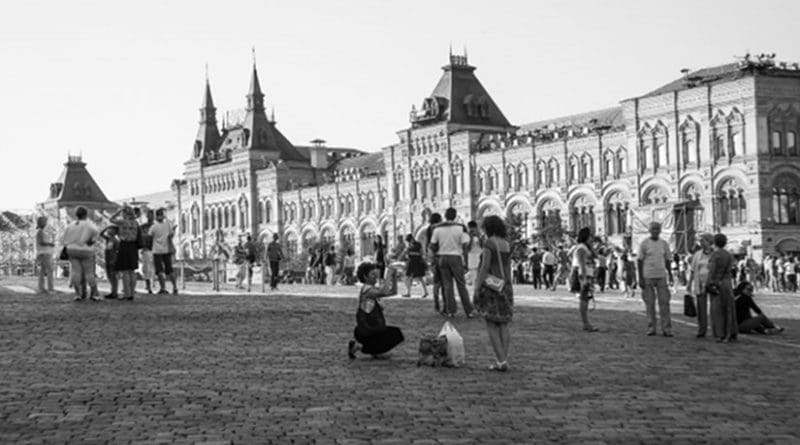Are We Getting The Straight Story About Russia From Its Immigrants? – OpEd
Do Russians who’ve emigrated to the West offer us a clear picture of what’s really going on today? Is it biased toward their motherland? Or is it tainted by bad experiences they’ve had in earlier times?
I got to thinking about this after hearing from an astute observer who put it this way:
“There is a large community of Russian emigres in the West who feel alienated from Russia, even while loving Russian culture. Other countries like Israel, China, and India use their emigrant populations to positively shape public opinion in the emigres’ new countries. I’ve observed that in Russia’s case many of these emigres are hostile to their homeland. Often, they haven’t been back in decades and have very outdated ideas about the country. That means they are vulnerable to believing contemporary Western news reports, many of which grossly mischaracterize what’s going on now. The news stories demonize the country and its leaders. Yet these emigres are often regarded by friends and associates in their new countries as experts on Russia. That means they end up actually confirming non-factual stories to those in their new communities. This in fact helps Russia’s antagonists to advance lies and for them to be believed.”
My own personal experience with immigrants from Russia in the US tends to bear out that observation. Many echo the mainstream media theme that Russia now plays a predominantly negative role in the world and is an obstacle to promoting the advancement of peace, democracy, and human rights around the globe.
I can recall a discussion with a Russian immigrant back when I was writing The Phony Litvinenko Murder. I was explaining what my research had revealed about a mysterious 2006 London death of the reputed ex-KGB spy Alexander Litvinenko. News reports had claimed Putin ordered the radioactive polonium assassination. But I found that those claims lacked a factual basis. The story turns out to have been cleverly fabricated by a London-based political enemy of Putin’s.
The Russian immigrant I was talking with is a woman originally from Saint Petersburg. She’s now a college professor in the US and married to an American. “There is no evidence of Putin’s involvement,” I said. Her reply was, “Yes, that’s how they operate. They leave no traces behind.”
That may or may not be true. But the point is that she held a presumption of Putin’s culpability, even in the presence of evidence that most of the Litvinenko story had been fabricated by a political adversary. Her presumption seems based on a conviction that the negative news stories are indeed the honest truth. This goes well beyond just the Litvinenko affair.
I wonder how many mistaken beliefs this “expert” on Russia has reinforced in the minds of others.
Not all Russian immigrants are like that. There are certainly others who don’t share that negative predisposition, but who choose to remain largely silent. Presently an overwhelming American sentiment against Putin and Russia prevails. I can understand the silence of immigrants who see things apart from the mainstream. Speaking out in opposition to the commonly-held misperceptions could bring about the scorn of others, and perhaps even precipitate one being labeled a Putinist. In America, being known as a Putinist is not a good thing. Being against Putin can be seen as a good survival strategy for anyone. Most candidates in the presidential race, judging from their own campaign rhetoric, quite obviously subscribe to anti-Putinism.
So what role do Russia’s immigrants really play in these issues? I decided to conduct a mini-survey on that question. It seeks to gather insights into whether or not the immigrants influence the attitudes of others toward Russia and its leaders — and, if so, in what way. If you are acquainted with any Russian immigrants, or are yourself one, I encourage you to answer a brief questionnaire on the subject. A link to it appears at the end of this article. Your participation in this study will be a big help in getting at the truth.
Just as an aside: This suggested phenomenon of immigrants having outdated ideas about their home country may not be limited to political issues. It manifests itself in their use of language, too. I’ve heard a number of emigres who arrived in the ’80s or early ’90s express themselves in what I’d call a Soviet vocabulary. Their word choices are rooted in the language usage that prevailed before the start of the Russian Federation. It is as if these people are frozen in time. The onslaught of new words and phrases that came along with Russia’s adaptation of Western business practices and the importation of Western products has escaped them.
I’ve heard that Putin believes there is too little cultural and interpersonal contact between North Americans and Russians. I think he’s right. The absence of contact allows troublemakers on either side to depersonalize the others, and get away with promoting negative stereotypes that are a far cry from reality. Certainly if more clear-minded Americans had firsthand interactions with sensible Russians, there would be far less buy-in to outlandish stories such as those in the Litvinenko case.
So let’s get to the bottom of this and get some input from both the immigrants and their interlocutors. Here’s the link to a brief questionnaire: www.bit.ly/1IfpDpK.
All survey respondents will receive an advance copy of my final report when it is rendered.

